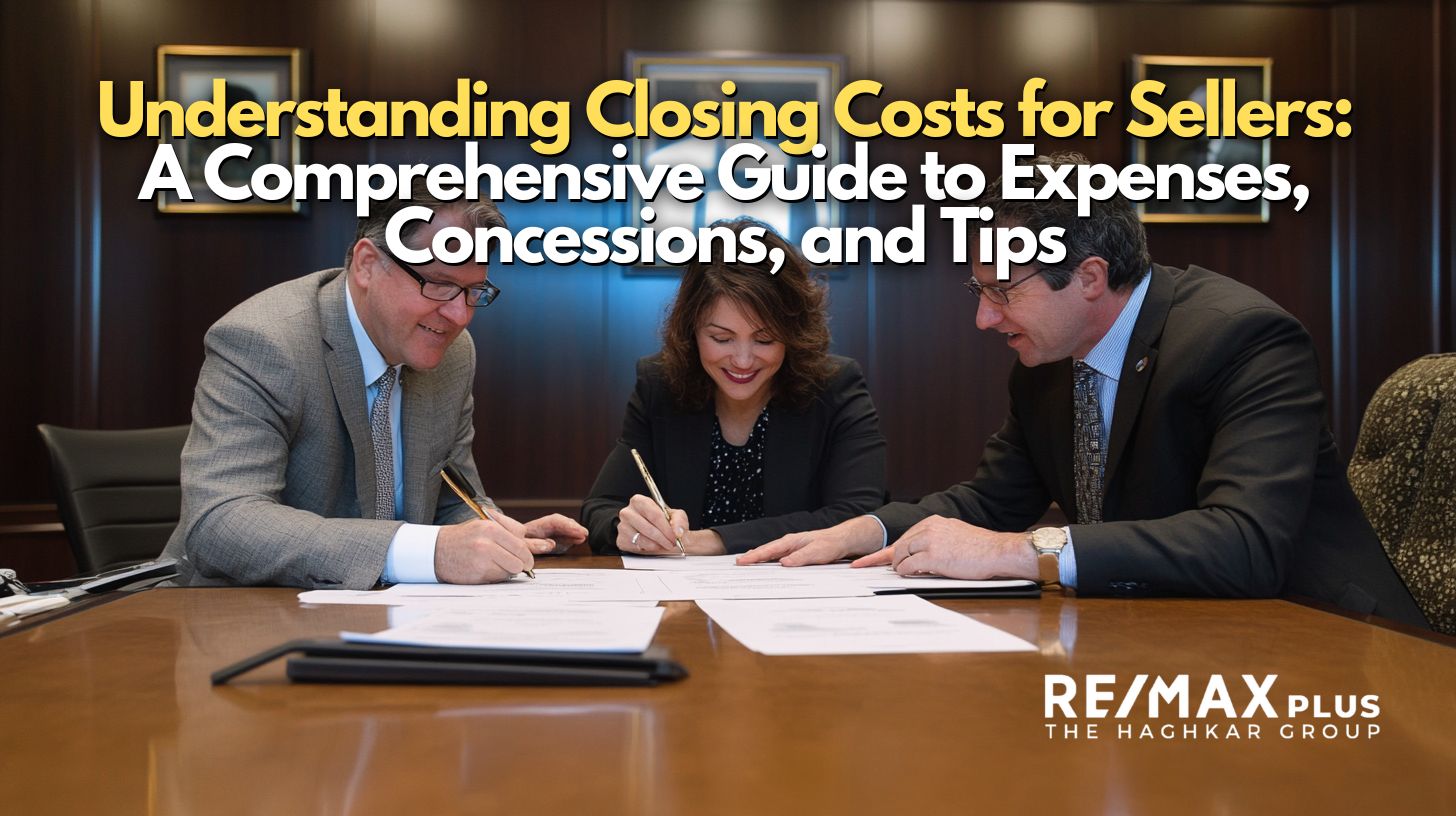
28 May Understanding Closing Costs for Sellers: A Comprehensive Guide
Understanding Closing Costs for Sellers: A Comprehensive Guide to Expenses, Concessions, and Tips
Estimated Reading Time: 8 minutes
Key Takeaways
- Understanding closing costs helps sellers set realistic expectations and avoid unexpected expenses.
- Closing costs can significantly impact the net proceeds from selling a home.
- Seller concessions can be used strategically to facilitate a sale.
- Knowing what stays with the house prevents disputes during the transaction.
- Being aware of contingencies helps sellers prepare for potential delays or costs.
- Understanding the roles of real estate attorneys and title companies can aid in smoother closings.
- Proper preparation of essential paperwork ensures a seamless closing process.
Table of Contents
- What Are Closing Costs for Sellers?
- Seller Concessions Definition
- What Stays with the House When You Sell
- Home Purchase Agreement Contingencies
- Buyer Inspection Negotiation Tips
- Real Estate Attorney vs. Title Company
- Preparing for Closing: Essential Paperwork and Steps
- Final Thoughts on Closing Costs for Sellers
- Help from Real Estate Experts
What Are Closing Costs for Sellers?
Defining Closing Costs for Sellers
Closing costs for sellers are the various fees, taxes, and expenses that must be paid at the conclusion of a real estate transaction. Typically, these costs range from 6% to 10% of the home’s sale price, according to Zillow, Redfin, and Visio Lending.
For a median U.S. home priced at $398,400, sellers might incur between $23,904 and $39,840 in total closing costs, as noted by Bankrate.
Common Closing Costs Sellers are Responsible For
- Real Estate Agent Commissions
- Historically one of the largest expenses, ranging from 3% to 6% of the sale price (Zillow).
- Transfer Taxes and Fees
- Government fees for transferring ownership; costs vary significantly by location, ranging from a few dollars to thousands (NerdWallet, Zillow).
- Title and Escrow Fees
- Mortgage Payoff
- The remaining balance of your mortgage must be paid from your sale proceeds (Bankrate).
These costs significantly impact your net proceeds from the sale by reducing your potential earnings. An understanding of these expenses helps sellers set realistic expectations and pricing for their property.
Seller Concessions Definition
What Are Seller Concessions?
Seller concessions are credits the seller offers to the buyer at closing to assist in covering the buyer’s closing costs, effectively reducing the buyer’s upfront expenses. For more strategies on selling in competitive markets, refer to How To Sell Your Home in a Buyer’s Market.
Scenarios for Seller Concessions
- Used in a buyer’s market to incentivize buyers
- When properties linger on the market
- For buyers who qualify but are financially stretched
- As a negotiation tool post-home inspections
These concessions directly reduce your net proceeds but can prevent a potential sale from falling through, motivating buyers under financial pressure.
What Stays with the House When You Sell
Defining What Stays with a House When You Sell
Understanding what stays with the property is crucial for preventing disputes during the transaction.
Fixtures vs. Personal Property
- Fixtures
- Items permanently attached to the property (e.g., built-in appliances, light fixtures, window treatments)
- Typically stay unless specified otherwise.
- Personal Property
- Movables like furniture or decorative items
- Generally do not stay unless included in the sales agreement.
Specifying clearly what is included in the sales agreement prevents misunderstandings and ensures both parties have clear expectations. For more on home presentation during sale, check out Home Staging Tips.
Home Purchase Agreement Contingencies
Understanding Home Purchase Agreement Contingencies
Contingencies are contract conditions that must be met for the deal to become binding, protecting both buyer and seller.
Common Contingencies Affecting Sellers
- Home Inspection
- Buyers may negotiate repairs or withdraw if significant issues arise.
- Financing Contingency
- Allows buyers to back out if they cannot secure financing.
- Appraisal Contingency
- Renegotiation is possible if the appraisal is lower than the purchase price.
- Home Sale Contingency
- Gives buyers the right to exit if unable to sell their current home.
These contingencies can influence your closing timeline and expenses, potentially resulting in costs like repair or price adjustments. For a deeper understanding of the home buying process, visit Home Buying 101.
Buyer Inspection Negotiation Tips
Providing Buyer Inspection Negotiation Tips
Effectively handling negotiations after buyer inspections can mitigate impact on closing costs.
Negotiation Strategies for Sellers
- Consider Pre-Listing Inspections
- Address issues beforehand to reduce negotiation points.
- Obtain Multiple Repair Quotes
- Ensure repairs quotes are reasonable and fair.
- Offer Closing Cost Credits
- Instead of making repairs, offer cost credits to buyers.
- Prioritize Essential Repairs
- Focus on safety and code violations.
- Be Open to Compromise
- Facilitate smoother negotiations by remaining flexible.
Negotiations can have significant implications on closing costs, with repairs substantially reducing your net proceeds.
Real Estate Attorney vs. Title Company
Comparing Real Estate Attorney vs. Title Company
Both play crucial roles in the closing process but with different focuses.
Role Comparison
- Real Estate Attorney
- Primary Focus: Legal advice and document review
- Services: Contract review, negotiation help, closing representation
- Advantages: Offers legal protection and expertise
- Title Company
- Primary Focus: Title search and insurance
- Services: Title search, insurance, escrow, closing coordination
- Advantages: Typically more cost-effective for straightforward deals
Considerations for Sellers
- Legal Requirements
- Some states require a real estate attorney.
- Transaction Complexity
- Complex sales benefit from attorney expertise.
- Cost Implications
- Straightforward transactions may opt for a title company to save on costs.
For detailed information on title insurance, refer to Title Insurance Information.
Preparing for Closing: Essential Paperwork and Steps
Outlining Essential Paperwork and Steps for Closing
Being organized prevents delays and ensures a smooth process.
Key Documents for Closing
- Deed to property
- Mortgage payoff statement
- Warranty information
- Repair and renovation records
- Tax records
- Homeowners association documents
- Utility bills and transfer information
Steps Before Closing
- Review Closing Disclosure
- Verify all costs and fees.
- Complete Agreed Repairs
- Ensure repairs are documented with receipts.
- Prepare Final Walkthrough
- Check property condition aligns with agreements.
- Collect Keys and Access Devices
- Include all related to the house.
Final Thoughts on Closing Costs for Sellers
Understanding the closing costs for sellers is crucial for a seamless transaction. Awareness of expenses, seller concessions, property inclusions, contingencies, and professional roles empower sellers to make informed decisions. Engage with real estate professionals for personalized guidance and a smooth closing process.
Help from Real Estate Experts
Navigating the complexities of selling a home? RE/MAX Plus’s experienced real estate professionals can provide personalized support tailored to your needs. Reach out for expert guidance to maximize your home’s sale potential and ensure a stress-free closing experience.

